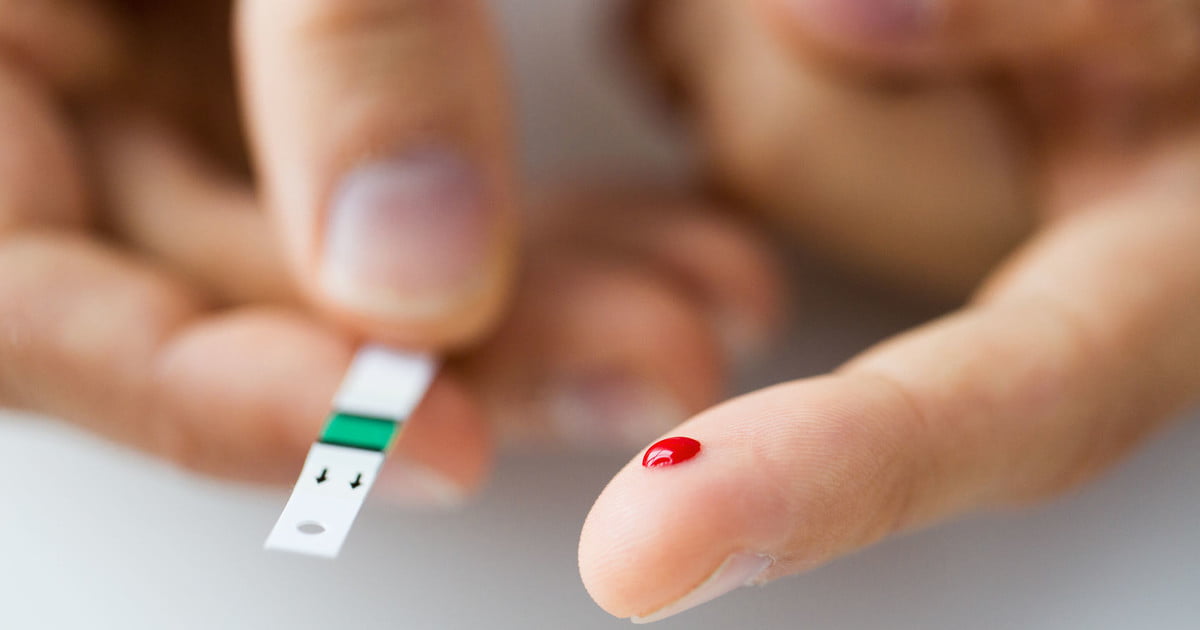Guide To Turmeric Side Effects, Precautions, And Interactions
Turmeric is a health supplement with several scientifically-backed health benefits. Turmeric is a spice derived from turmeric plants, and it's most commonly found in traditional cuisine from several different Asian countries. The spice has a bitter and warm taste, and it's often used to flavor cheese, butter, mustard, and curry powder. In addition, turmeric contains curcumin, which is a yellow chemical used in the coloring of cosmetics and foods. The most common use for turmeric is to treat conditions involving inflammation and pain. However, like with any supplement or medication, it's important to be aware of the side effects and interactions. If an individual has a health condition that's being treated with medication, they should talk to a doctor before adding any supplements to their diet.
Get familiar with the potential side effects and interactions associated with turmeric now.
Upset Stomach

Turmeric is considered safe when taken by mouth for periods lasting up to twelve months. With that said, some individuals have reported experiencing an upset stomach. Individuals are more likely to experience an upset stomach if they take large amounts of turmeric over a long period. They may also experience stomach upset if they begin taking turmeric in large doses after not having consumed it regularly before. The problem is individuals introducing new ingredients to their diet always comes with the risk of upsetting their digestive system because their body isn't sure how to process them yet. There are chemical agents in turmeric that can help regulate an individual's digestive health and strengthen their digestive system. However, the same agents have the potential to cause an upset stomach. In one study being done on the potential of turmeric for treating cancer, some participants had such negative nausea and upset stomach effects that they were forced to drop out of the study.
Reveal more side effects of turmeric now.
Diarrhea

In the same way turmeric might cause nausea or an upset stomach, it might also cause diarrhea. Turmeric has a marked effect on the digestive system. The way it regulates digestive health is by stimulating the stomach so it produces a larger amount of gastric acid. For some individuals, this helps with digestion and regular bowel movements. For others, it can cause painful bloating, cramps, nausea, diarrhea, and loose stools. If individuals are not sure how turmeric will affect their digestive health, they should start taking supplements in low doses and build up over time. Patients should consult a doctor if they have digestive health issues or health problems like diabetes already. Gastric acid is the digestive fluid that forms in the stomach and helps break down food, allowing individuals to digest proteins. The fluid is comprised of sodium chloride, potassium chloride, and hydrochloric acid. This acid is produced by the cells that make up the lining of the stomach. Turmeric stimulates the stomach to create more gastric acid.
Read more about the potential side effects of turmeric now.
Dizziness

Some individuals have reported experiencing dizziness due to turmeric. The dizziness may occur alongside digestive symptoms like nausea, stomach cramping, and diarrhea, though it doesn't always. The cause of the dizziness hasn't been well-researched. It may have to do with the potential digestive issues caused, as nausea can sometimes make individuals feel faint. Some research indicates turmeric can lower triglycerides, which can contribute to high cholesterol. In addition, turmeric contains antioxidants, which can have a blood-thinning effect. If an individual's blood becomes too thin, they may be prone to excessive bleeding and dizziness.
The dizziness may also be related to an iron deficiency. Taking too much turmeric has been shown to inhibit iron absorption in some individuals. Turmeric is one of several spices known to inhibit the absorption of iron in individuals from twenty to ninety percent. If individuals already have a diet low in iron, this can be a big concern. Individuals who need to be careful include vegans, vegetarians, and anyone else who may struggle to incorporate iron-rich foods into their diet.
Get more details on the side effects linked to turmeric now.
Low Blood Sugar In Diabetes Patients

Turmeric might affect the blood sugar of diabetes patients. If individuals want to use turmeric to manage their diabetes, they need to talk to their doctor first. Some diabetes patients already take medication to lower their blood sugar, and consuming high quantities of turmeric can compound with that can cause dangerously low blood sugar. Blood sugar management is a delicate balance in both type 1 and type 2 diabetes patients. The health benefits of turmeric are credited to curcumin, which is the spice's active component. In a 2013 review of multiple research studies, the data indicated curcumin may be able to decrease blood glucose. It can also reduce the potential for complications from diabetes. Some researchers believe curcumin might be effective at preventing individuals from developing type 2 diabetes, but more research is necessary on that front. Some other research indicates turmeric extract might help with the stabilization of blood sugar and diabetes management.
Read about medication interactions with turmeric next.
Anticoagulants

Patients taking anticoagulants should not use turmeric, particularly in high doses, as turmeric also has blood-thinning effects, and research has shown it magnifies the anti-clotting properties of anticoagulants. This means patients might begin bleeding spontaneously, and they might experience long nosebleeds when they hadn't before. If individuals get a cut, scrape, or other abrasions, they might find it doesn't clot even after they place pressure on it for a while. Some patients might experience serious bleeding risks, such as internal bleeding or brain bleeds. It can be very dangerous to have blood become too thin. The amount of time blood takes to clot is measured in prothrombin time. If an individual's prothrombin times are too high, this means they have a much higher chance of bleeding and blood loss.
Uncover additional turmeric side effects, precautions, and interactions now.
Some Powders Contain Gluten

When choosing a turmeric supplement or powder, it is important to check all of the ingredients carefully. Some powders contain gluten, and this could cause issues for patients with celiac disease and those on gluten-free or elimination diets. Curry powder and other products that include turmeric as part of a blend with other spices may be more likely to have gluten. Patients who are sensitive to or allergic to gluten should look for turmeric powders that are certified as gluten-free. Ideally, these should only contain turmeric. Individuals who notice they develop stomach issues after consuming turmeric should ask a healthcare professional for advice, especially if they have celiac disease and believe they may have unintentionally ingested gluten.
Continue reading to learn more about the potential things to watch out for in regards to turmeric now.
Can Worsen Gallbladder Issues

Turmeric causes can worsen gallbladder issues in individuals who already have them. The supplement causes the gallbladder to contract, and this may lead to pain for patients with gallstones or a bile duct obstruction. Turmeric contains a relatively high level of oxalate, a substance that is known to increase the risk of gallstones. A 2008 study found that turmeric supplementation increased oxalate levels in just four weeks. Patients who have gallstones or any issues with their gallbladder should not take turmeric supplements, and they may want to avoid this spice in meals as well. If symptoms such as stomach pain, diarrhea, nausea, or constipation occur in an individual who has recently been diagnosed with gallbladder issues, the patient should see their doctor as soon as possible. Individuals who develop these symptoms and have not yet been diagnosed with a gallbladder issue should see a physician for an evaluation. The doctor will need to know the patient has been using turmeric, and information about dosage and duration can aid in proper diagnosis.
Read more about the various side effects of turmeric now.
Increased Bruising

Increased bruising is a potentially serious side effect that could develop with long-term turmeric use. Patients are more likely to experience this side effect if they take turmeric supplements for more than eight months. Turmeric slows down the body's rate of blood clotting, which increases the risk of bruising, bleeding, and internal bleeding for patients with pre-existing bleeding disorders. Individuals who notice frequent or easy bruising should see their doctor urgently. It can be helpful to note the location of bruises and how long they have been present. The patient should also let the doctor know if they remember bumping the bruised area recently. Tests may be necessary to check the patient's blood clotting time and to look for signs of internal bleeding. Patients who take blood thinners or medications to treat high blood pressure, high cholesterol, heartburn, cancer, or diabetes should check with their doctor first before deciding to use turmeric.
Discover more information regarding turmeric side effects and interactions now.
May Prevent Iron Absorption

High doses of turmeric may prevent iron absorption, and turmeric should be used with caution in patients who have an iron deficiency. Studies conducted in the laboratory and on animals suggest turmeric binds to iron, decreasing the body's ability to absorb iron from food. In theory, this could result in anemia in patients who are already mildly deficient in iron. While some human studies have concluded iron absorption was not affected by turmeric supplementation, most doctors advise patients to be careful about consuming large doses of turmeric if they have or are at risk for an iron deficiency. In fact, a case study from January 2019 reported that a sixty-six-year-old male developed an iron deficiency after consuming six turmeric extract capsules per day. Patients should ask their healthcare provider about a safe turmeric dose for their health needs, and they may also want to have their iron levels checked regularly. When consuming any amount of turmeric, patients may want to increase the amount of iron in their meals. Iron-rich foods such as lentils, chickpeas, peas, and soybeans may be beneficial, and some patients might need to take an over-the-counter iron supplement as well. Patients should check with their doctor before taking any type of supplement.
Continue reading to learn more about precautions to remember when it comes to turmeric now.
Can Interfere With Surgery

Since turmeric reduces the blood's ability to clot, it can interfere with surgery. Patients who need to have dental surgery, a medical procedure, or any type of operation that involves cutting the skin should check with their doctor about when they need to stop taking turmeric supplements. Generally, most healthcare organizations recommend patients scheduled for surgery to discontinue turmeric supplementation at least two weeks before the operation. Patients should let their dentists, doctors, and other healthcare professionals know they are taking turmeric. If turmeric is not stopped before surgery, increased bleeding could occur during the operation, which might result in complications. Surgeons may need to take additional steps during the operation to control bleeding, and extra medication could be necessary. Patients who continue to use turmeric in the two weeks before their surgery could also experience more bleeding than normal after surgery, and this could result in a longer hospital stay and recovery time. After having an operation, the patient should ask their surgeon about when it is safe to start taking turmeric again. The doctor will monitor the patient's wound healing and bloodwork to make sure turmeric supplements will not be harmful to the patient's overall health.